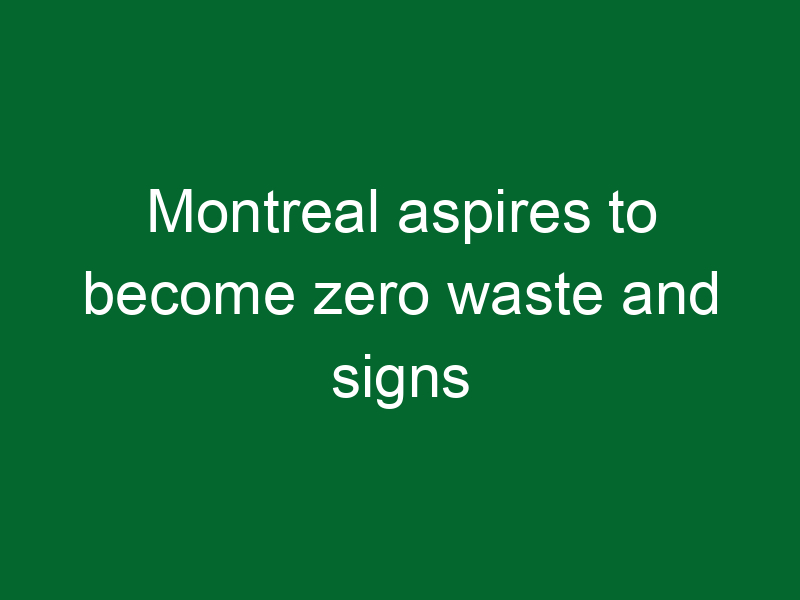Montreal aspires to become zero waste and signs declaration
Advancing Towards Zero Waste
Montreal, August 29, 2018 – Jean-François Parenteau, Head of the Environment and Sustainable Development on the Executive Committee, will lead a delegation representing the City of Montreal to the Global Climate Action Summit. San Francisco, September 12-14, 2018. A rallying event for leaders and representatives from around the world, the Summit is a springboard for accelerated global action to achieve the historic Paris Agreement and prevent dangerous climate change. More specifically for 2018, the decarbonization of the world economy is targeted.
“The work of all actors in society is necessary to achieve the international goals of climate change. Montreal must show strong leadership to ensure a sustainable future and a healthy environment for current and future generations. This is why at the Summit, Montréal intends to join the One Planet Charter and commit to initiatives that can be quickly implemented to accelerate its actions. This determination to act is expressed by a first commitment from Montreal to move towards zero waste, and therefore reduce by 2030 the amount of waste generated by promoting source reduction, “said Mayor Valérie Plante.
“The City of Montreal adheres and signs the Advancing Towards Zero Waste declaration to send a strong message to reduce the amount of residual materials and minimize the landfill. As part of the Summit, we will talk to people all over the world about best practices in this area, “says Jean-François Parenteau. “Thus, Montréal is committed to reducing the amount of solid waste produced per capita by at least 15% by 2030 compared to 2015 and to reduce by at least 50% the solid waste from buried municipal sludge and sludge. or incinerated without energy recovery. Montreal wants to value at least 70% of its residual materials by 2030 “.
It should be noted that the Montréal community’s GHG emissions inventories show a 78% reduction in GHG emissions from the residual materials sector between 1990 and 2014, ie the emissions produced annually by approximately 325,000 passenger vehicles (1,519 kt eq CO2). This reduction, mainly due to improvements in biogas capture systems emitted by landfill sites and a reduction in the landfill rate, contributes one-third to the 30% reduction target. GHG emissions from the community by 2020, just over 10% of 1990 emissions.
For more details on Montreal’s waste management and climate change initiatives, we invite you to consult the Residuals and Climate Change sections of the City of Montreal’s website.




